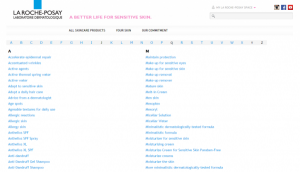
At the beginning of the pandemic, corporate privacy lawyer Cece Xie found herself in an unexpected position when her first TikTok went viral. The video was a meme comparing her relentless work pace to that of her friends, who were working in marketing and having, as she remembered it, “a lot of happy hours.” She began accruing a large number of followers who started asking her questions about her life and her job.
TikTok easily makes influencers out of everyone from lawyers like Xie to people who are just really good at using Microsoft Excel. As a privacy lawyer-slash-rising TikTok influencer, Xie was on corporate America’s new frontier, where employees even in the most conservative-sounding office jobs can leverage their expertise and a knack for content creation to paid influencing opportunities. Managers must now increasingly figure out what social media policies make sense for this slash-influencer class, which seems to largely expect these pursuits to be allowed.
Xie didn’t just take her TikTok traction and run with it. Before she began posting a lot, she consulted her firm’s social media policy and met with one of its social media coordinators. The firm unsurprisingly didn’t want her posting any confidential information, but also advised her not to post at certain times of day that could indicate if she was or wasn’t in a meeting. Xie said, “This is the part I did appreciate about my law firm—they did not want to stifle what the lawyer as an individual said. So it was a lot of, ‘You can say whatever you want, so make it clear you are speaking on behalf of yourself and not on behalf of the firm.’”
Her following grew to be so large that sponsorship offers that were too lucrative to just pass up started coming in. “I think I was lucky that I worked very closely with some partners who did believe that you should be able to do other things in life besides work,” she said. So they set up a process for Xie to get sponsorships approved. Influencing pays her well enough that she recently left her law job to pursue book writing, though she plans to retain membership in the Bar Association.
Xie acknowledged that not all law firms are as supportive of employees’ social media use as hers was. Much of corporate America is probably aghast at the prospect of having part-time influencers on their payrolls. Take media, which has had a slash influencer workforce for several years now, but still lacks an industry standard for managing it, quite unlike the long-accepted standards for freelance work. (Insider recently reported on tension at the New York Times resulting from a committee formed to approve journalists’ outside projects, which led to a weekend-long Twitter debate about the merits of journalists having “personal brands” largely derived from social media; I agree with the side that argued that for today’s journalists, personal brands are essential.)
Threatened by employees’ abilities to book their own advertising business—which media companies have been struggling to grow for at least around a decade—some media companies have tried to restrict such employee activities entirely, or take a cut of all their deals, arguing their affiliation with the publication enabled them to create a monetizable platform. (I recently reported in my newsletter that Vogue, for instance, takes 40 percent, around twice what an influencer agent would take). However, these policies often just drive employees who enjoy their media jobs to leave because media pays poorly, and at a certain point it doesn’t make financial sense for them to stay and turn down money.
Xie thinks having a clear social media policy that’s written down and accessible ought to be the baseline for any company. Noting she spoke on the topic with her background as a privacy lawyer, she said, “It disservices both the employer and employee to not formalize policies, because you are basically asking for confusion and deviation from what you actually want.” A policy, she added, prevents “weird anxiety on the part of their employees.”
A media employee-slash-influencer who did have that weird anxiety only felt comfortable speaking anonymously for this story, out of fear her employer would shut down her sponsored posts. Her company has told others when asked that sponsorships of personal feeds are not allowed, but hasn’t committed this policy to writing in the employee handbook or elsewhere.
“The last [sponsorship] I did was more than my paycheck for the whole month,” said the employee. “I feel like at my job, I’m underpaid,” she added, explaining that her only raises since 2019 have been annual cost of living bumps of around three percent. If she were told she had to stop monetizing her social media posts, she would quit, even though she enjoys her job.
But trying to suppress social media use and attendant sponsorships is only likely to hurt the media industry in the long run as these policies become increasingly unattractive to creative talent. The covert influencer said, “We work in media—don’t they want people that have a voice and influence?”
Bizarrely, despite in many ways being a progressive industry, many media companies fall behind others that might seem more conservative, in sectors like medicine, investment banking, and management consulting—all of which employ slash-influencers. Jacob is the consultant-slash-influencer who co-runs the meme account Consulting Humor, which has nearly 400,000 followers on Instagram. He said he doesn’t advertise his side job, but the partners he works with know that he does it and don’t have a problem with it, so long as he puts his day job first.
“Most consulting firms do try and make sure you can have a robust life outside of work and try to support people who have side hustles and side passions,” said Jacob, who asked not to be identified by his last name or the name of his firm to make clear he wasn’t speaking on behalf of his company. In consulting, “we don’t sell a product,” he said. “The driver of success in our business is when people stay in the firm, and that’s any consulting firm. I would say because of that, consulting firms do a lot to try and keep people.”
Jacob never felt like his company was out to unfairly restrict anyone’s social media use. When he started, he went to social media training that emphasized that employees always represent the firm. “All it takes is one off-color remark or one picture that you didn’t want online,” Jacob said, “and it hurts the business model of having a really strong reputation.” (McKinsey’s Code of Professional Conduct reads: “All colleagues are expected to present themselves professionally on social media. Even in the use of private social media accounts, we expect colleagues to be mindful of the perceptions that can be created.”)
This makes restrictive social media policies that drive away talent that much more confounding. If consulting companies and law firms can figure this out, why hasn’t the media? Unlike Jacob, many consultants don’t use social media as part of their jobs. But in media, social media aptitude is a required skill that’s often gained through personal use.
Companies trying to prevent people from capitalizing on that skill—in media and beyond—will probably have to change their policies as Gen Z enters the workforce. Unlike elder Millennials, Gen Z and young Millennials have had access to social media as we know it today throughout their adolescences. Xie, the privacy lawyer, wouldn’t be happy if she couldn’t monetize her posts, but, she said, “If I ever encountered a company that was like, ‘you can’t have social media,’ I would think that was wild.”
Amy Odell is the author of ANNA: The Biography, which comes out in May from Gallery Books.
Fast Company , Read Full Story
(37)








